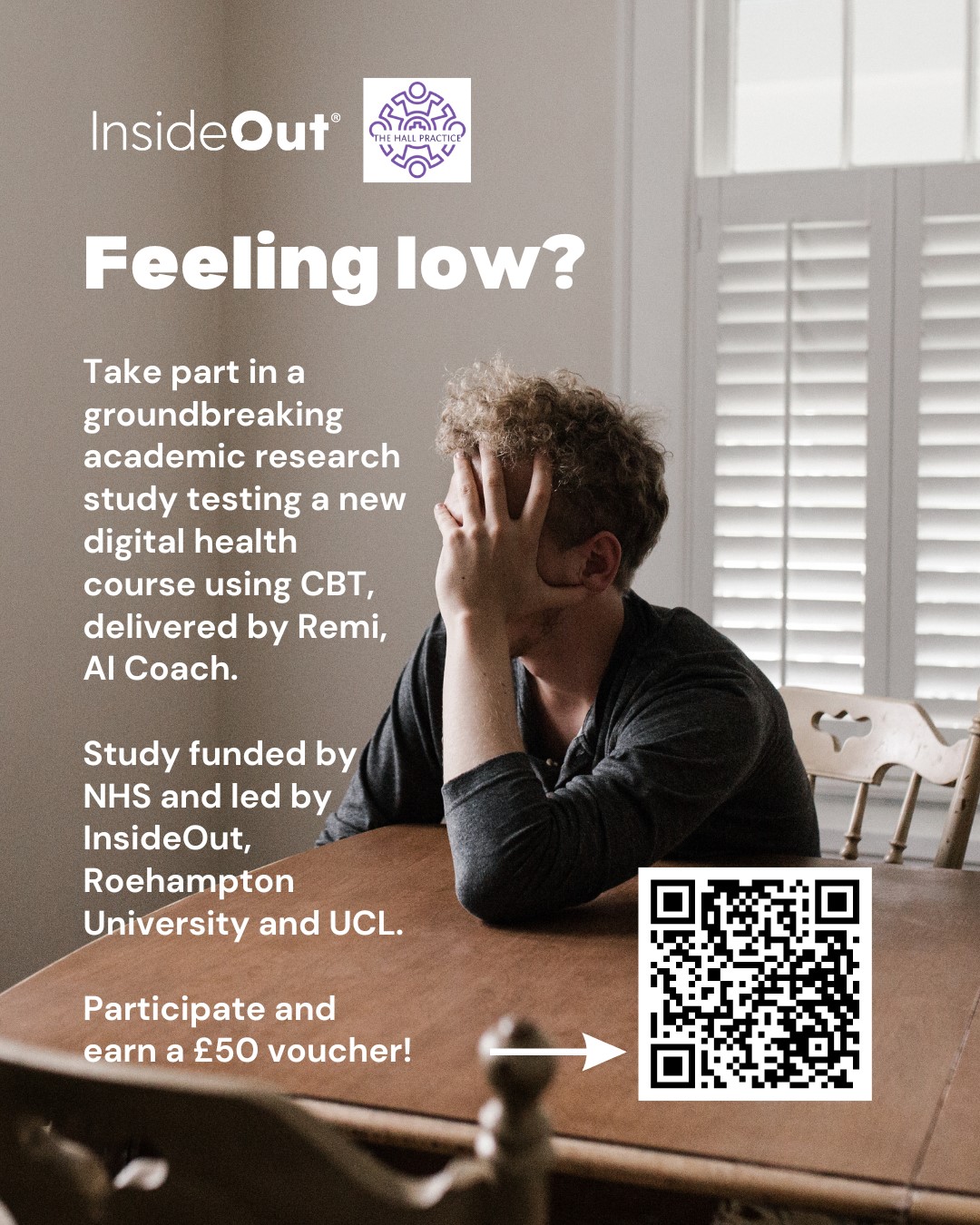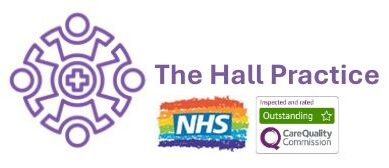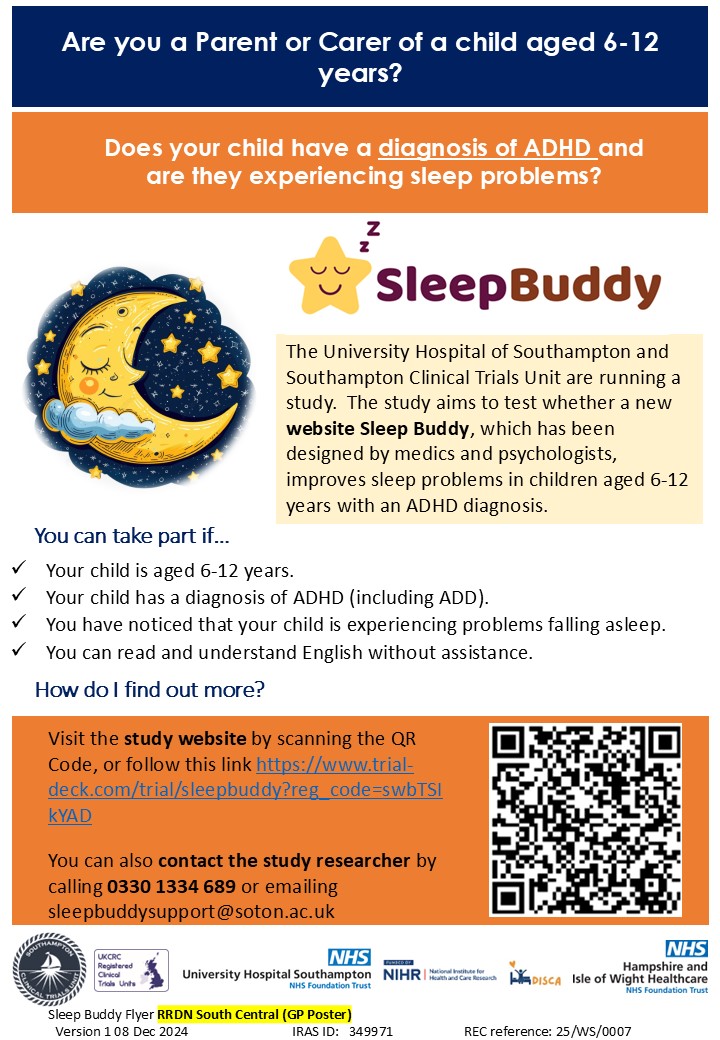Non-urgent advice: How we support medical research
We believe medical research benefits both our patients and future generations. Research provides the evidence needed to prevent, diagnose, and treat illnesses, as well as improve healthcare services. Advances in research can lead to earlier diagnosis, better treatments, prevention of illness, improved outcomes, and quicker recovery. Patients who take part in research may help others, access new treatments, and receive extra care and attention from the research team.
Our research lead is Dr Nicola Turner.
Recent studies involving our patients have covered asthma, hip dysplasia in children, domestic violence and abuse, kidney disease, preventing pain after shingles, and preventing heart disease and diabetes in South Asian patients.
Non-urgent advice: Research in the NHS with NIHR
Clinical research drives innovation and is key to maintaining high standards of patient care. Taking part in research gives patients access to new treatments, medicines, and interventions. Investing in research leads to better, more cost-effective care for everyone.
The National Institute for Health and Care Research (NIHR) is the UK’s largest funder of health and care research. It provides the people, facilities, and technology needed for research to succeed. Working with the NHS, universities, local government, other funders, patients, and the public, the NIHR supports world-class research that improves lives, boosts the economy, and advances science.
The Hall Practice is part of a network of local GP practices involved in research through the NIHR Clinical Research Network Thames Valley and South Midlands (CRN TVSM). Hosted by Oxford University Hospitals NHS Foundation Trust, this network covers Berkshire, Buckinghamshire, Milton Keynes, and Oxfordshire.
Taking Part in Research
Things you may want to know about Research
Research at The Hall Practice
The Hall Practice takes part in medical research, and from time to time you may be invited to join a study. Taking part is completely voluntary — you can say yes or no, and this will not affect the care you receive. If you agree, you can still withdraw at any time without giving a reason, and this will not affect your care.
All research at The Hall Practice is carefully reviewed and approved by health authorities and ethics committees to ensure it is safe and appropriate. You will always receive clear information about what the study involves and have the chance to ask questions. All research follows UK laws, including data protection (GDPR).
You might be invited to take part via text message, NHS App notification, email, or letter. Your doctor or nurse may also mention research during your appointment. Sometimes, a member of the study team may approach you in the waiting area — rest assured they are approved by the practice.
What you’ll be asked to do varies by study. Each project provides a Patient Information Sheet explaining what participation involves, and the study team will be available to answer any questions.
What you need to know
- Participation is voluntary — no one will pressure you to take part.
- Your decision will not affect your care or relationship with your doctor or nurse.
- You will receive clear information before agreeing to take part, including a Patient Information Sheet.
- If you agree, you’ll sign a consent form detailing what parts of your medical records may be used.
- Your contact details and medical records will not be shared without your permission.
- You won’t be asked to join many studies, as each has specific criteria and only a small number of patients are usually eligible.
Your data for research (GDPR Guidelines and Anonymous Data)
Research Consent, Data Use, and Communication
If you agree to take part in a study, you will be asked to sign a consent form. This will explain which parts of your medical records (if any) may be accessed for the research. No one outside the practice will have your contact details or access to your records without your permission.
Our practice also takes part in national database projects that collect anonymised medical records from GP surgeries across the UK. These records contain no identifiable patient information and are used to monitor infections and diseases nationwide.
Sometimes, researchers use third-party mailing companies, like Docmail, to send study invitations. These companies comply fully with data protection laws such as GDPR and are approved by regulatory bodies including the NHS Health Research Authority and Research Ethics Committees.
If you receive an invitation to join a study, please be assured:
- The letter will come directly from our practice.
- We do not share identifiable information with researchers without your consent.
- Our staff handle research mailouts using approved mailing services.
- Your contact details are kept secure, not shared outside the system, and deleted after 28 days.
What if I don’t want to get involved in research?
We recognise that some people may not want to receive information about research studies by post or text message.
If you do not want to be contacted about research studies that we may run at the practice in the future, please let us know. If you change your mind at a later date, you can still opt back in at any time.
To opt out of participating in any research studies visit the NHS Your Data Matters website to set your preferences
What are the benefits of your practice being active in research?
Evidence suggests that patients who receive care in research-active institutions have better health outcomes than those who are treated in a non-research environment.
By joining the research community, we are actively helping to improve the standard of healthcare for our patients.
Research provides an opportunity for you, the patient, to better understand your health conditions as well as give something back to the NHS and wider community.
Sometimes it can provide patients with access to new treatments, as well as bringing a new dimension to practice and added skills to those involved.
The practice will receive funding to cover any additional costs of taking part in research (it does not come out of our own budget and so routine patient services will not be affected).
Practice collaboration with research data registries
We are part of Clinical Practice Research Datalink which means that we contribute de-identified data to CPRD (Clinical Practice Research Datalink) for public health research. CPRD is a real-world research service supporting retrospective and prospective public health and clinical studies and is jointly sponsored by the Medicines and Healthcare products Regulatory Agency and the National Institute for Health Research (National Institute for Health and Care Research), as part of the Department of Health and Social Care.
Individual patients cannot be identified from this information but you are able to opt out if you prefer. Protecting the confidentiality of patient data is paramount, and only anonymised patient data is provided to researchers
We are part of the Royal College of General Practitioners (RCGP) Research Surveillance Centre (RSC) which means that we contribute de-identified data to the RSC for public health research. The RSC is an active research and surveillance unit that collects and monitors data, in particular Influenza, from practices across England.
Individual patients cannot be identified from this information.
Support for Primary Care Research
The National Institute for Health Research works with researchers and primary care practitioners such as GPs, practice nurses, pharmacists and dentists to promote the successful delivery of research studies in the NHS.
We support a wide range of research including studies which look at:
- Promoting a healthier lifestyle
- Disease diagnosis and prevention
- Management of long-term illnesses such as diabetes or hypertension
- Prevention of future ill-health
- Treating common conditions such as influenza
Current Research in Practice
Atopic Dermatitis
Pfizer Atopic Dermatitis
The Hall Practice is working with Egin Research on an interesting research study for ATOPIC DERMATITIS. Patients who might be eligible, will receive a text message or letter, with information about the study and how to take part.
COAT – Cellulitis Optimal Antibiotic Treatment
COAT– Cellulitis Optimal Antibiotic Treatment – A Research Study for Adults with Cellulitis
What is the best treatment for cellulitis?
If you have a painful lower leg and are diagnosed with cellulitis, you may be asked if you would like to take part in a clinical trial. We know that antibiotics help people with cellulitis recover but we don’t know if it is better to treat for 5 days or 7 days. Our surgery is supporting a study that will answer this question. For more information, please ask your doctor, nurse or other member of our practice team.
COPD TITANIA Study
COPD TITANIA STUDY
We are working with Egin Research on an interesting research study for patients with COPD (Chronic Obstructive Pulmonary Disease) who have a history of exacerbations, and who would be happy to volunteer to take part in the study. If this applies to you, and you would like to learn more, please contact the Egin Research team using the options below:
Text COPD to 07340206910
Or
Call 07340206910
Or
Email your contact number and COPD to info-eginresearch@velocityclinical.com
To take part in this study you must:
Not have a diagnosis of lung cancer
Be aged 40 years or older
Have had a diagnosis of COPD for at least 1 year
Dementia
Dementia Research
Find out more and register your interest in taking part in vital dementia research. Please visit their website.
Join Dementia ResearchEarSwitch – Help Develop a New Assistive Communication Device
GLAD Study – Genetic Links to Anxiety and Depression
GLAD Study – Genetic Links to Anxiety and Depression
An exciting opportunity to get involved in the largest ever study of anxiety and depression. Developed in Collaboration with Mental Health Charity MQ and with Patients and Service Users.
To take part in the GLAD Study part of the NIHR BioResource, you must:
- Have experienced clinical anxiety and/or depression during your life
- Be aged 16 and above
- Live in the UK
HERON Survey – Help Shape the Future of Lung Technology
Call for Respondents – Help Shape the Future of Lung Technology – Looking for patients/carers and health care professionals
The HERON project aims to identify the most pressing unmet needs in respiratory health and explore how new or improved technology could better support patients, carers, at-risk groups, and health professionals.
We are interested in hearing from people who:
- Are living with a chronic lung condition
- Believe they might be living with a chronic lung condition based on symptoms or tests
- Think they may be at high risk for developing a chronic lung condition (e.g. due to smoking, family history, exposure at work or poor housing)
- Are caring for someone who is living with a chronic lung condition
- Are a healthcare professional caring for adults and children living with chronic lung disease. The survey is open to professionals working across all care settings, all disciplines, and all stages of patient journey.
Patients, carers, and individuals at risk can complete the survey here: HERON: Survey for patients and the public — NIHR HealthTech Research Centre – Community Healthcare
InsideOut – Feeling depressed or struggling with low mood?
Take part in a groundbreaking academic research study testing a new AI-powered CBT course.

OPTIMISE2 – Optimising Treatment for Mild Systolic Hypertension in the Elderly
OPTIMISE2 – Optimising Treatment for Mild Systolic Hypertension in the Elderly
Our practice is participating in the OPTIMISE study by Oxford University, which explores safely reducing blood pressure medications in patients aged 80 and over. Eligible patients will be contacted by letter at home and can join the study by returning the reply slip directly to the study team. The trial aims to improve quality of life by minimising medication while maintaining blood pressure control, potentially reducing risks like falls. To find out more, please visit the study website.
OPTIMISE2 WebsiteSleepBuddy – Does your child have a diagnosis of ADHD and are theyexperiencing sleep problems?
South Asia Biobank
South Asia Biobank is an international research study designed to prevent the high risk of cardiovascular disease, diabetes, and cancer among South Asian people.
In order to take part in the study participants have to meet a basic criterion of:
- Be of South Asian origin
- Aged between 18-85
- Have an NHS number
You will not be able to participate if you are pregnant or have suffered from a recent acute illness.
For further information about the study and how to participate, please visit their website.
South Asia BiobankSWELL – Skills for Adolescent Well-being
SWELL – Skills for Adolescent Well-being
We are currently contacting families registered with our practice, to ask if they would be interested in taking part in a new research study run by the Wolfson Centre for Young People’s Mental Health at Cardiff University.
The Wolfson Centre was launched in 2021 with a focus on reducing anxiety and depression in young people. This includes finding ways to prevent depression in young people before it develops. As part of this work, researchers are undertaking a randomised control trial of an online psychological intervention (group Cognitive Behavioural Therapy – CBT) for young people aged 13-19 years, who have a parent with a history of depression. The aim is to examine whether this CBT group intervention reduces depression and improves functioning in the young people who receive it.
The research team are looking for parents with a history of depression who also have a child aged 13-19 years old to take part. If you are interested in taking part, please complete our online expression of interest form at the following link:
SWELLFor more information visit Skills for Adolescent WELLbeing study – Wolfson Centre for Young People’s Mental Health – Cardiff University
Patient Perspective: Is research right for me & what do patients taking part in research really think?
Ultimately, our research helps people to access and take part in studies which could potentially make a real difference to their health conditions and quality of life.
Click on the links below to hear more from patients who have taken part in research: Click on the links to find out more information:
Here are a few quotes from patients who have taken part in research:
- “I felt being part of the research helped my case, maybe got treatments that I would not have had otherwise”
- “I do feel as though I’m contributing to the improved care for future generations”
- “With the close monitoring / treatments from everyone, I now feel a lot healthier”
- “The process has made me much more aware of my condition and that advice and care was immediately available”

